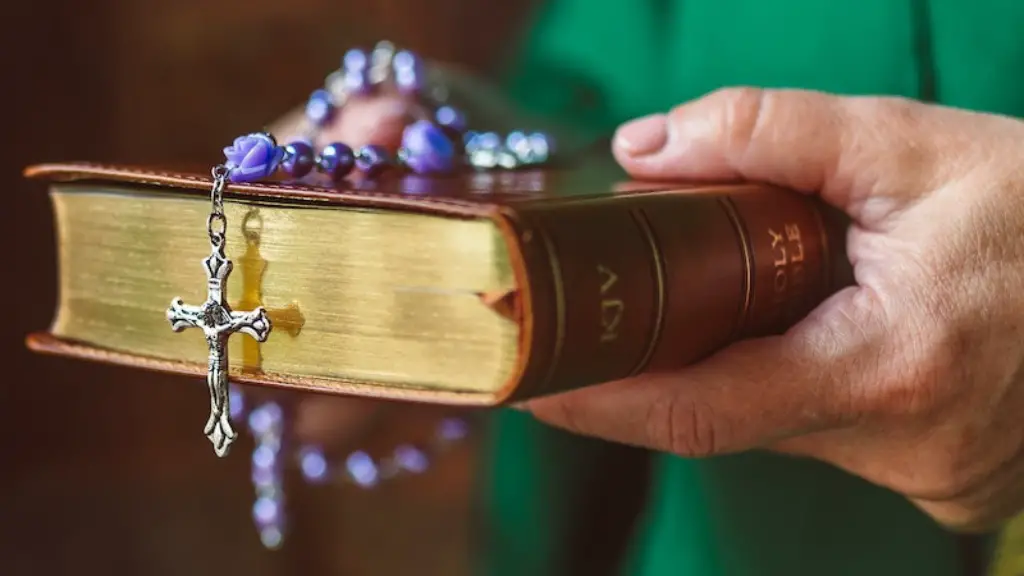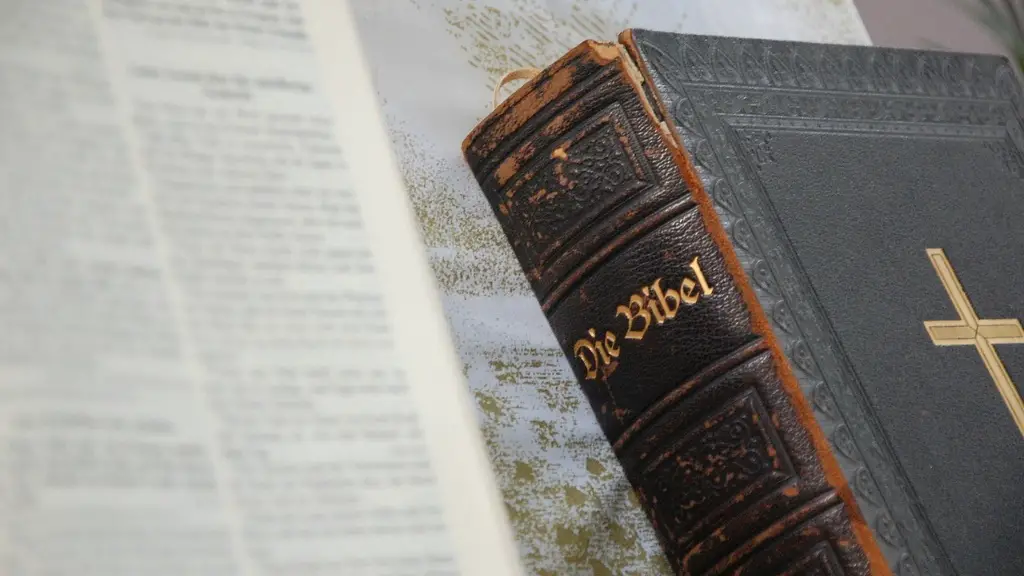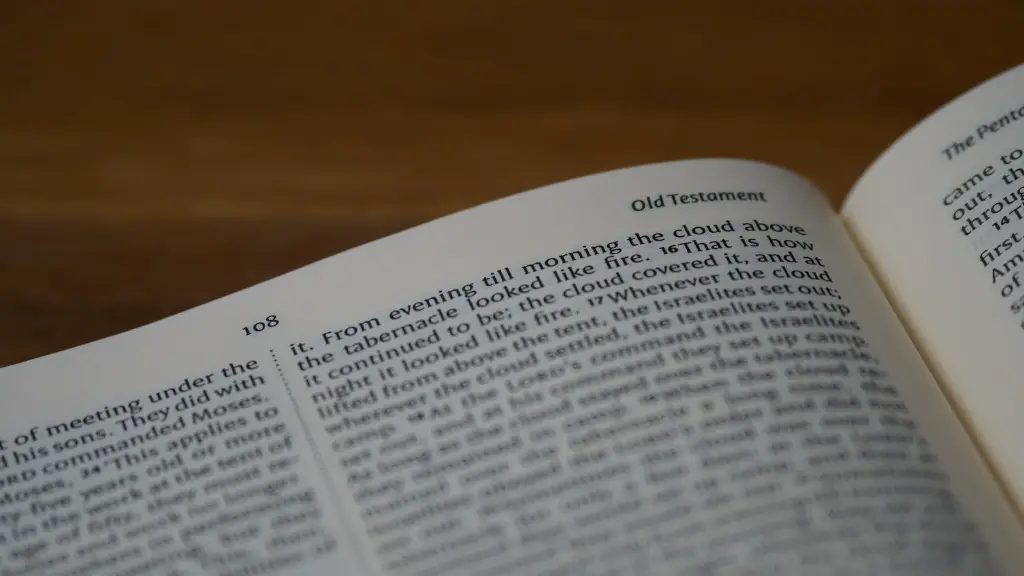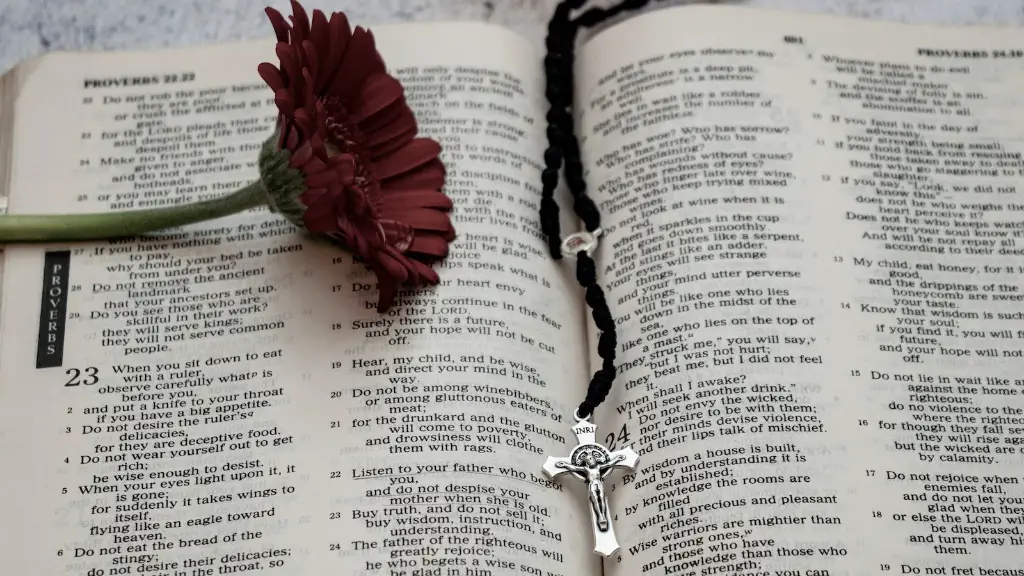What Is Communion In The Bible
Communion, or holy communion, is a Christian rite that is central to church life. It’s often referred to as the Lord’s Supper and refers to a meal Jesus shared with his disciples at the Last Supper. In Communion, participants eat bread and drink wine — sometimes referred to as the Body and Blood of Christ — in remembrance and celebration of Jesus’ death and Resurrection.
This ancient ceremony has been observed in Christian churches since before the time of the Apostles. The first biblical reference to Holy Communion is seen in the gospel of Luke. In this account, Jesus took bread and wine and shared it with his twelve disciples at the Last Supper. He then commanded them to do this in remembrance of him, saying “This is my body which is given for you.” With these words, Jesus instituted the Lord’s Supper, a service of Communion that has been celebrated since that day.
At Communion, each participant recognizes the life, death and resurrection of Jesus. In doing so, a person recognizes his or her own need for a relationship with Jesus Christ and his redeeming grace. It is also an opportunity to remember the many blessings each person has been given by God and to express gratitude for them. Furthermore, it is an act of unity and shared faith among all believers.
The Bible also teaches that Communion is the fulfillment of a promise. In the Gospels of Matthew and Mark, Jesus promised that he would not depart from the world until he returned in glory. As a sign of his undying love and commitment, he said, ” This is my body given for you; do this in remembrance of me.” It is through Communion that Jesus keeps this promise in the lives of all who believe in him.
Additionally, in the Gospels of Luke and John, Jesus said that eating his body and drinking his blood were essential if a person is to have eternal life throughout all eternity. This interpretation of the Lord’s Supper emphasizes the importance of Communion not just as a spiritually meaningful ritual, but as a means to participate in the divine mystery that Jesus Christ offers to all who come to him.
Communion and the Early Church
The New Testament provides several accounts of the early Church celebrating Communion. The Apostle Paul, for example, wrote to the Corinthians about a communal meal that the Church observed. Paul reminded the believers to celebrate Communion in a manner that honors God—one that invites all members of the Church regardless of their socio-economic status to partake in the meal.
The early Church followed the instructions provided by Jesus in the Gospels. They celebrated Communion in remembrance of his sacrifice. As the Church grew, it adopted practices that helped keep Communion meaningful, such as the offertory—a ceremony of thankfulness to God for his blessings. As the Church continues to observe Communion, it is designed to help each participant remember and rejoice in the sacrifice of Jesus Christ.
Communion plays a prominent role in Christian faith, with the rite featuring in churches, chapels, and cathedrals around the world. By taking part in Communion, believers symbolically and knowingly partake of the body and blood of Jesus, as symbolized in the bread and wine.
Communion and Salvation
From a biblically fundamental perspective, Communion is an act of salvation. Those who partake of Communion, once again symbolically, receive the grace and forgiveness that comes through the body and blood of Jesus Christ. There are those who believe the elements physically represent the body and blood of the Lord, while others argue that it is only a symbolic gesture observed by the Church in remembrance of their Lord.
The Book of Romans teaches that Communion results in believers possessing unity through spiritual bonds and that taking part in Communion helps to achieve salvation. In this way, Communion has a redemptive effect, as participants repent of their sins and accept the grace offered by Jesus, making way for a serious relationship to grow.
In other words, receiving Communion signifies that a person has accepted Jesus as a personal Savior, and desires to commit his or her life to Jesus and his Church. Sadly, some have taken Communion lightly and have not made a full commitment to the Lord, resulting in only short-term benefit.
Communion and Baptism
The Bible makes it clear that baptism and Communion are related. In the Christian Gospel, Jesus calls everyone to be baptized by water and spirit and then, Eating of this bread and drinking of this cup. This can be seen in several places in the Bible and while everyone isn’t baptized immediately after taking Communion, the two occurrences are seen as related events.
The primary purpose of baptism is to provide a sign of conversion. By way of baptism, a person receives the gift of the Holy Spirit, by virtue of the power of Jesus Christ, which makes formal the entrance into a personal relationship with the Lord. At the same time, Communion serves a similar purpose for those who have already taken up the Lord, and have made a conscious commitment to live according to the teaching of Jesus.
Communion and Fellowship
The Bible lists several reasons for partaking in Communion, one of which is fellowship. The Church understands that the bread and wine are symbols of the greater blessing of shared fellowship. Through sharing in Communion, believers come together in a spirit of unity as they remember and acknowledge Christ’s sacrifice together.
In a sense, Communion is a meal with a message. It’s an occasion to come together in love and unity, celebrating the spirit of Christ’s presence in the lives of His followers. It is a reminder of the lasting bond that exists between believer and Saviour, in which each professes to be a part of the Lord’s secular family.
Communion and Worship
In the New Testament, Jesus commanded his disciples to “go, therefore, and make disciples of all nations, baptizing them in the name of the Father and of the Son and of the Holy Spirit, teaching them to observe all that I have commanded you.” By partaking in Communion, believers make sure to be in tune with this great commission, worshiping the Lord and expressing their obedience to his teaching.
The Lord’s Supper is a special time of worship and reflection. During Communion, believers also meditate on the promise that Jesus left for his followers. In this way, believers are reminded of the hope and assurance that is found only in Jesus Christ and that He is the only way to obtain lasting peace and freedom.
Interpretations of Communion
The term “communion” is open to interpretation. For Christians, Communion is a ritual ceremony that symbolizes the mystery of suffering, death, and resurrection of Jesus. Seen in this light, Communion helps believers to recognize the oneness of their spiritual connection with the divine while providing comfort, spiritual healing, and assurance.
For some, Communion is viewed only as a symbol or a remembrance of Jesus’ sacrifice and not an actual partaking of the body and blood of Jesus. For example, some denominations observe “open communion”, which allows individuals of any Christian denomination to partake in Communion. In contrast, other denominations practice “restricted communion” and require certification and denomination restrictions.
Ultimately, believers believe that Communion reminds them of Jesus’ love, grace, and mercy. Thus, Communion encourages believers to continue to live out their faith, accepting and receiving his gift of salvation on a daily basis.





